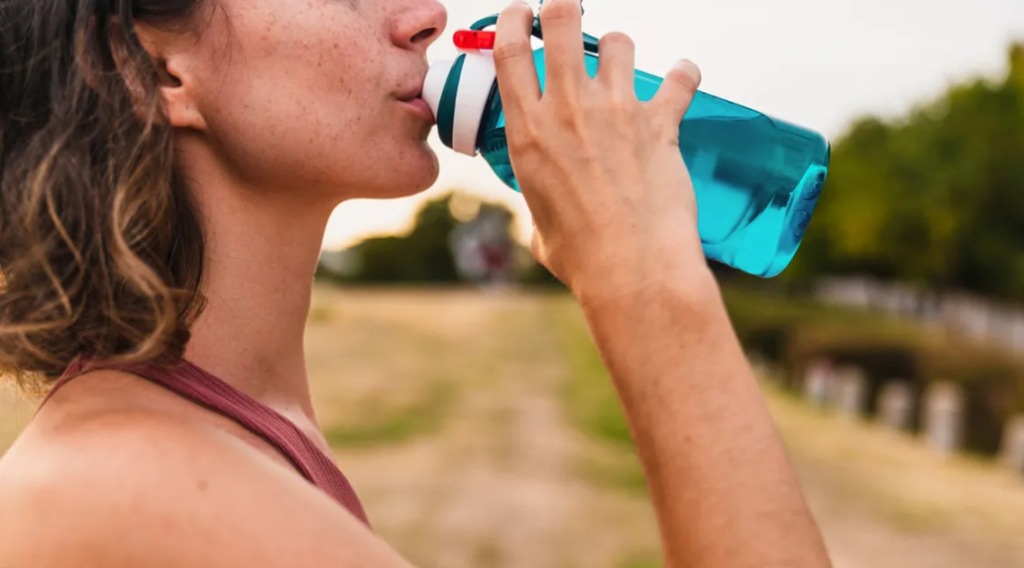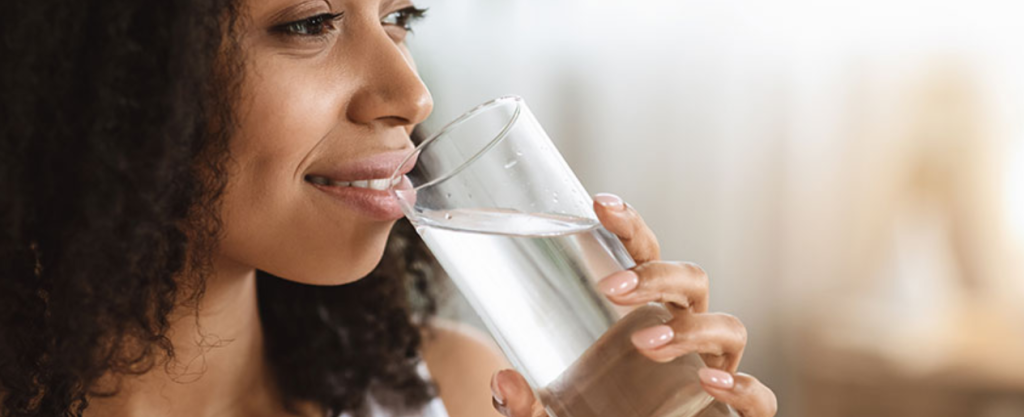Many people are unknowingly dehydrated, with symptoms like headaches, constipation, and bad breath. While it’s common advice to drink lots of water, the answer to “How much water should I drink?” is quite simple: If you’re thirsty, drink; if not, don’t worry.
However, there are some exceptions, which we’ll discuss shortly. You might want to continue reading if you’re an athlete, pregnant, or over 65. Let’s explore your hydration needs.
How much water do you need?
People typically need around 3 liters (101 ounces) of fluid daily, but this can vary between individuals. Approximately 34 ounces (1 liter) of this may come from food, particularly if their diet includes water-rich foods like fruits, vegetables, oatmeal, or yogurt. This means they’ll need to consume about 2 liters (67 ounces) from beverages. So, the traditional advice of “drink 8 cups of water a day,” totaling 64 ounces, is a reasonable general guideline.
The amount of water you require is influenced by various factors, including your age, weight, health condition, and physical activity level. If you’re petite and have a sedentary lifestyle, you might need less than 3 liters. Conversely, your water needs will be greater if you’re in a larger body and engage in physical activity in hot, humid conditions.
Therefore, relying on your natural sense of thirst is often a more accurate indicator than trying to consume a fixed volume. However, there are exceptions to this rule, such as athletes, older individuals, or pregnant women.

How much water should athletes and exercisers drink?
Your thirst usually works fine when you’re not doing much. But during physical activity, it’s not as reliable.
We realized this way back in the 1930s. There was an experiment where a man and a dog had to walk nearly 20 miles in very hot weather. They could drink whenever they wanted. But the dog stayed well-hydrated, while the man lost about 6 pounds of body weight due to sweating.
Research has shown that people who do intense exercise often don’t drink enough when they only rely on their sense of thirst. They usually replace only about half of the fluids they lose.
When you’re doing hard exercise in a hot, humid place, you can quickly lose 1-2 percent of your body weight. That’s enough to make your heart beat faster, increase your body temperature, and make the exercise feel harder. If it’s something like cycling, it can also make you slower.
How much water should you drink during pregnancy?
When you’re pregnant, your body needs more fluids because your blood volume increases.
As a basic guideline, try to drink about 1 liter (34 ounces) more liquid during pregnancy than you used to drink. If you’re unsure if you’re drinking enough, you can check your urine. (See the “Are you hydrated?” section below.)
If your urine looks dark, you might not be drinking enough. If it looks light or clear, you’re doing well.
How much water should older people drink?
When older individuals go to the hospital, they are frequently dehydrated.
This is likely because, as we age, our thirst signals and kidney function don’t operate as efficiently as they once did. Additionally, some medications can lead to increased urination, and our bodies might not retain as much fluid. This combination raises the likelihood of dehydration.

If you’re 65 or older:
Drink extra fluids, about 8 to 16 ounces (approximately 0.25 to 0.5 liters), on top of what you think you need.
Choose any drink you like, such as an electrolyte beverage, iced tea, or even diet cola. (For more on why hydration is more important than worrying about artificial sweeteners, read: Should you drink diet soda?)
Keep an eye on your urine color; drink more if it’s bright yellow or darker. (For specific details, see Are you hydrated? below.)
Be aware of the signs of dehydration, including dark urine, tiredness, dizziness, headaches, and a dry mouth.


